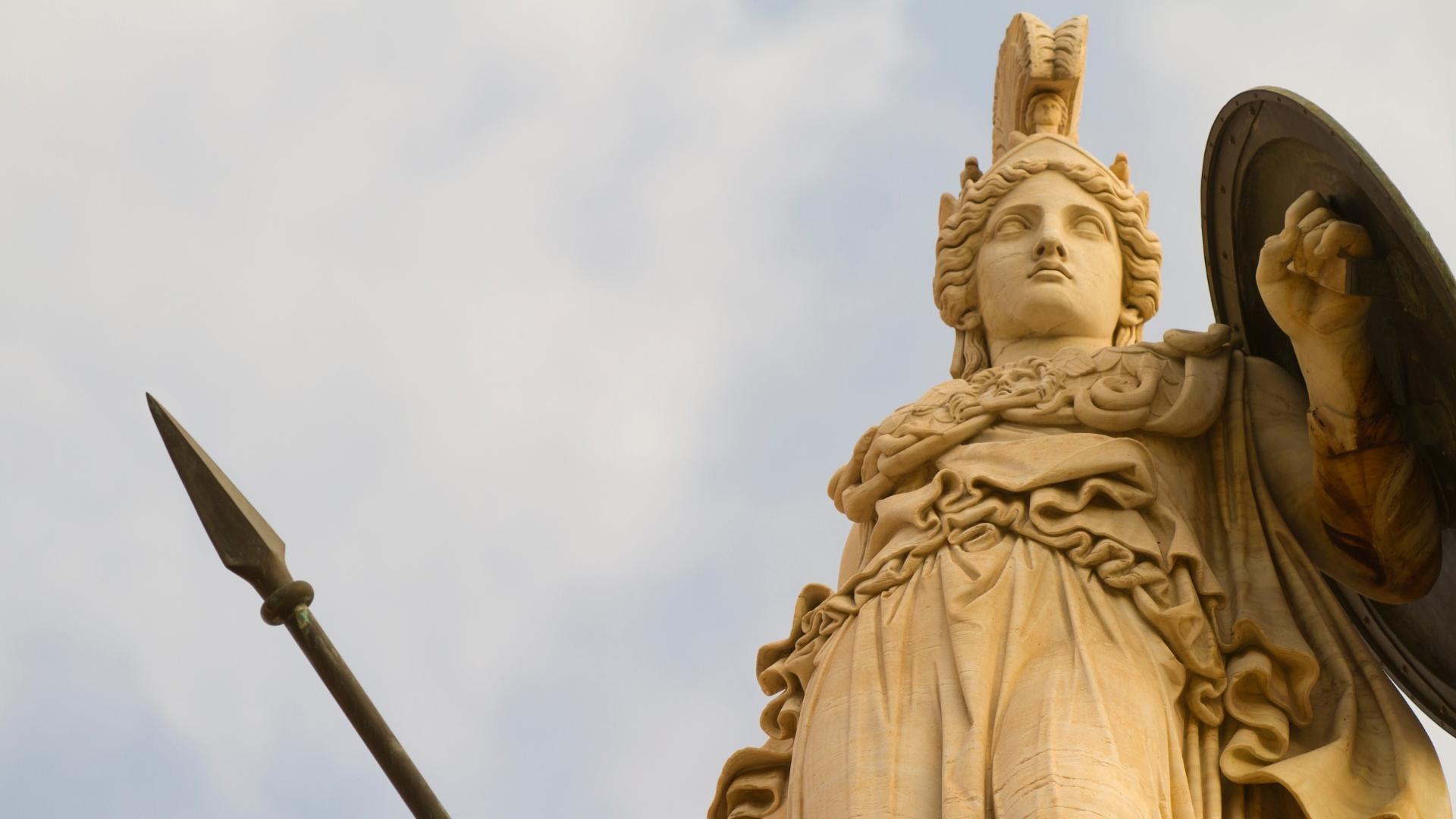By Connie Skibinski.
In the modern world we have an image of what ancient Greek women were like – demure, modest, house-bound. Not the type to excel in sports or physical combat, and certainly not against elite men.
When we think of ancient sports, we recall the celebrated Marathon runner, Pheidippides, whose heroic run between Athens and Sparta in 490 BCE initiated the most famous footrace in the world. Even today, images of modern athletes are often male with physiques reminiscent of the idealised Greek male form. However, Greek mythical women have also left a legacy in the history of women’s sport and combat – a legacy that continues today.
The Boeotian princess Atalanta was renowned for her speed, skill and dexterity. A far cry from the image of the domesticated housewife, the athletic heroine had no interest in marrying, although she attracted many suitors.
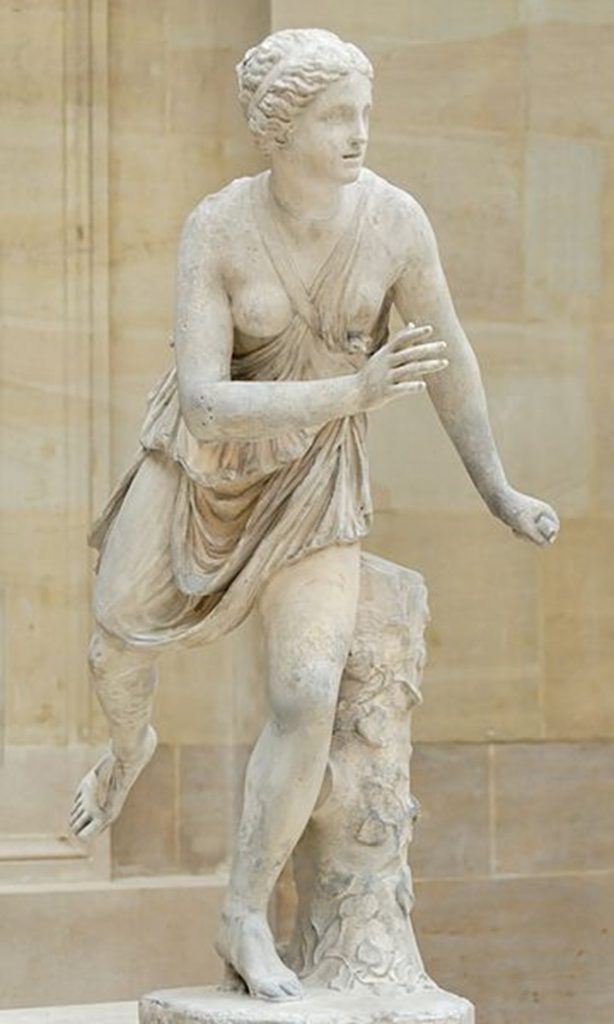
When Atalanta’s father forced her to marry, she challenged her suitors to a footrace. The winner could have her hand in marriage, but any man who lost would be killed. Despite these dangerous terms, many men took up the challenge. She outstripped them all with the exception of Melanion, who won by trickery. He dropped golden apples belonging to the goddess Aphrodite on the racecourse and outran Atalanta when she stopped to pick them up. The only man who could beat Atalanta had to rely on the help of a goddess to do so.
Atalanta was not just a fast runner, she was also exceptionally strong. In fact, Atalanta’s name – which means ‘equal in weight’ – likely refers to her strength and success in contests with men. The ancient writer Psuedo-Appollodorus (2nd Century AD) tells us that Atalanta won a wrestling match against Peleus, the legendary King of Pythia and father of the famous hero Achilles. This was a famous scene in ancient Greek vase-paintings, depicting Atalanta and Peleus wrestling for the prize of the Calydonian boar skin, a monster which Atalanta helped to hunt and kill.
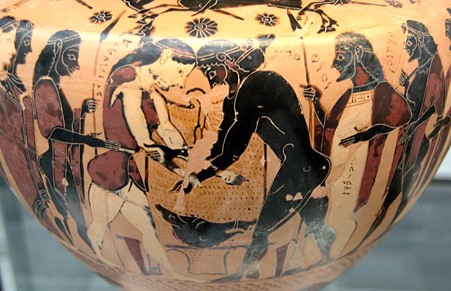
Through an athletic prowess that rivalled legendary male heroes, Atalanta challenged the idea of sport as a strictly masculine domain. Her legacy inspires women in sport today, as seen in the name of the professional women’s running team Atalanta NYC. She remains a role model for contemporary elite female athletes more generally, as they – like Atalanta – push past societal barriers to excel in the sporting arena.
While Atalanta’s legacy lies in her athleticism, the ancient Amazons are renowned for another traditionally masculine quality – their military proficiency. Like Atalanta with her disdain towards marriage, the Amazon women rejected domestic duties and patriarchal norms entirely, living in all-female societies where they devoted their time to hunting and war training.
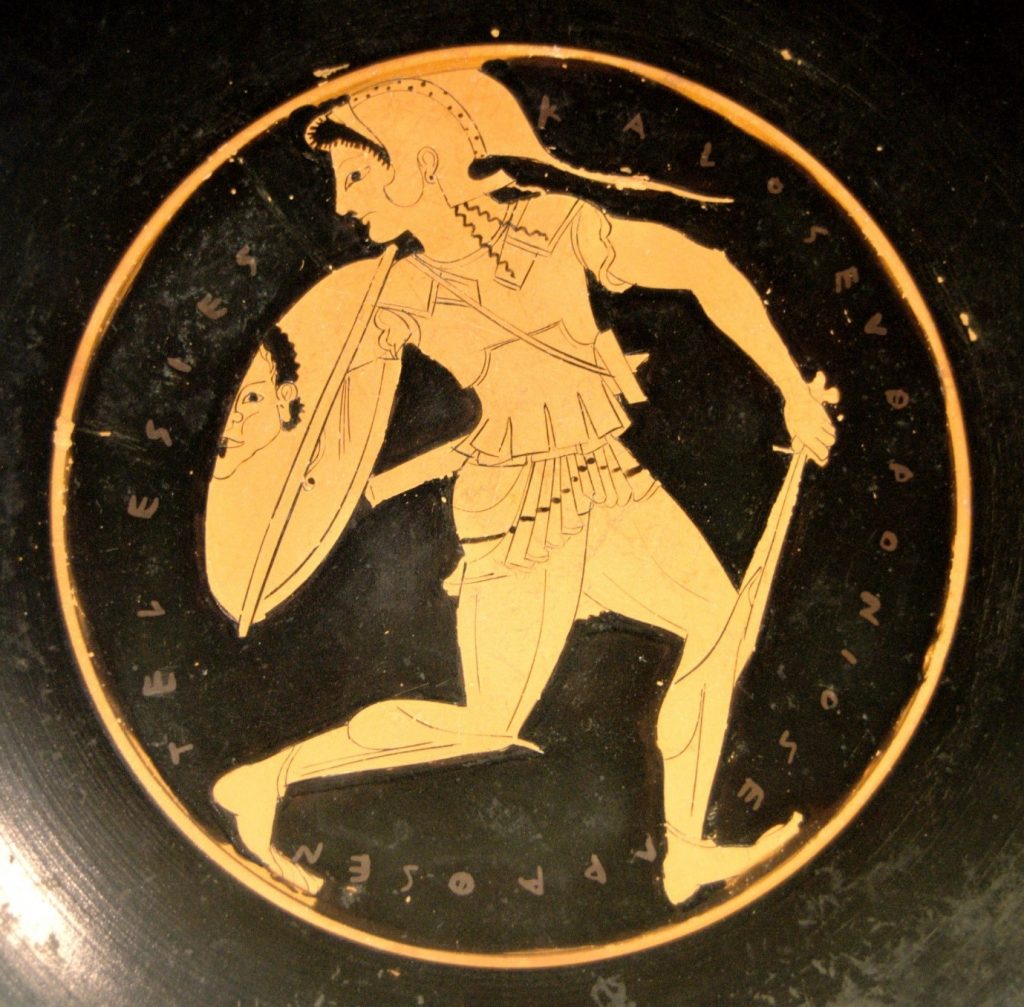
Tales of the Amazons – often portrayed with weapons and armour – were based off the Greeks’ observations of real warrior women such as Scythian cavalrywomen, highlighting the very long history of women participating in the military realm.
In ancient Greek myth and legend, the Amazons were a formidable tribe of elite cavalrywomen, whose skill in armed combat granted them the title ‘equals of men’. They fought extended campaigns where they defeated countless Greek male warriors. They only met their match when they went up against the most renowned heroes like Achilles, Theseus and Heracles. When Amazon queens fought the ultimate Greek heroes, they put up a formidable fight to the end, granting them heroic status for their unflinching courage on the battlefield.
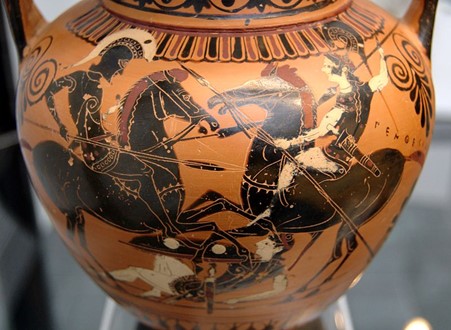
With women increasingly taking on combat roles in the armed forces, the legacy of the mythic Amazons and their real historical counterparts continues today, showing that with training and perseverance women can excel in the military sphere.
Ancient Greek heroines like Atalanta and the Amazons challenge the idea that sports and warfare are solely male domains. The athletic and military prowess of the female body is not a modern phenomenon – it has been celebrated for thousands of years. Women today need only to look back to the ancient Greeks to find the inspiration they need to succeed in the modern world.
Biography:
Connie Skibinski is a PhD (Classics) candidate at The University of Newcastle, having completed an honours degree in Ancient History/Ancient Greek at The University of Sydney. Her doctoral research examines the complex and multifaceted portrayal of the Amazons in ancient literature and art, and analyses how Amazon mythology has been reconfigured from the Medieval era to the twenty-first century. Connie was interviewed by ABC Radio National to discuss the portrayal of the Amazons in ‘Wonder Woman 1984’ (2021) when the movie debuted and is currently writing a book chapter on the Amazons in ‘Xena: Warrior Princess’.

